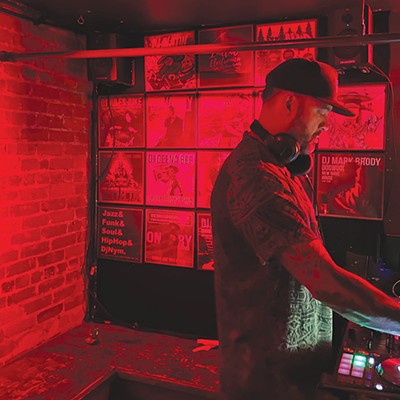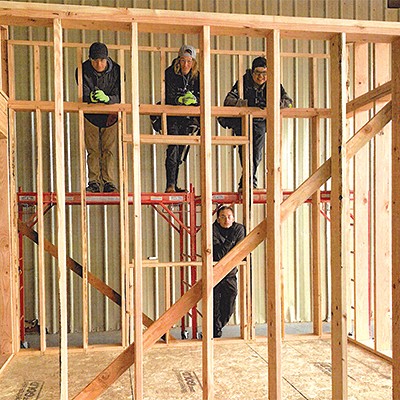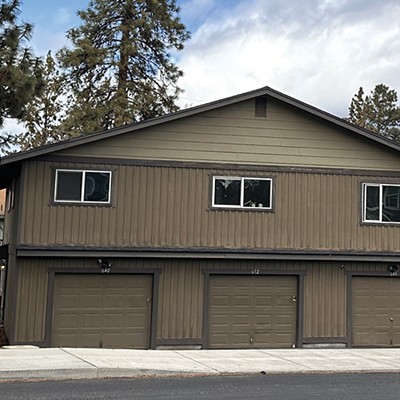Last week, after three hours of debate, City Council gave a resounding 5-2 vote to confirm Casey Roats as a new member of the incoming governing body. During the final months of the campaign, his qualifications had been questioned because it was unclear whether he was a resident under the meaning of the City Charter.
"It really pleased me that a big majority of the Council decided I qualified and it was time to move on," Roats told the Source shortly after the vote to confirm his qualifications.
Yet, the matter may not be over. Local attorney Charles Ringo, who first raised questions about Roats' residency, had filed a lawsuit challenging those qualifications. That original lawsuit was pulled because the judge explained that they had filed too soon—said most simply, they had filed a complaint before they really had anything to complain about because Roats had yet to be confirmed. But now that the matter is "ripe," Ringo has said that they plan to re-file the lawsuit.
Respectfully, we ask them not to do so.
Yes, over the past few months, we reported extensively on the debate over Roats' residency. However, there is also a time to move on.
Roats won the popular vote in November and, in December, his qualifications were confirmed by a majority of City Council. To continue to question Roats' qualifications is now questioning the wisdom of voters and City Council, and is contentious at a time when the city should be starting to find common ground. Politics can be either an intelligent discussion, or a contentious debate—and, to a large degree, that tone depends on the losers.
Unfortunately, there are far too many examples of how politics is becoming increasingly contentious—where the losing party pouts, stomps its feet and refuses to move forward. That is truly the antithesis of mature democracy.
The largest example is, of course, the U.S. Congress, which continues to brood over healthcare and immigration reforms, going so far as considering not inviting the President to provide a State of the Union address in January. And the result? Correspondingly, faith in Congress is at its lowest point in U.S. history; less than 7 percent.
Or, look here in Oregon, where proponents for Measure 92, the initiative to label whether food products contain GMOs, refuse to concede defeat. In an expensive and exhaustive campaign, Measure 92 failed by a slim margin. In the first count, Measure 92 trailed by about one percentage point. In response, proponents went around the state and shook every ballot box they could get their hands on to find another vote in their favor. Ultimately, they found a few hundred such votes, but Measure 92 still failed by 812 votes of the 1.5 million cast. Yet the closeness of that vote has triggered a recount, which is scheduled to be completed by Friday, but also does not seem to change the ultimate result: that Measure 92 failed. Yet still, proponents continue to refuse to accept defeat—and are threatening further lawsuits.
Certainly, we want to see fair and complete elections—and, as a newspaper, we endorsed, Measure 92. However, part of the positive functioning of democracy is that losers must ultimately concede.
Perhaps appropriately, this century, which sadly has seen political debate dissolve into rancor, began with a closely contested presidential campaign, one in which voters waited with bated breath over hanging chads and ballot recounts in Florida. But what is often glossed over is Al Gore's ultimate response to the contentious process. After three weeks of recounts and Supreme Court challenges, in a concession speech, Gore nobly quoted Sen. Stephen Douglas, who after a bitter defeat in 1860, told Abraham Lincoln, ''Partisan feeling must yield to patriotism."
Gore went on to say, "What remains of partisan rancor must now be put aside, and may God bless his stewardship of this country."
Likewise, it is time to move forward and start the new chapter for Bend's City Council with concession and camaraderie, not with factions and friction. In our next issue, we are reviewing some of the debates currently splitting Bend—over Mirror Pond, over OSU's campus, over Airbnb rentals. We are looking at the tone with which Bend residents and leaders manage these debates—whether as a discussion or as a division. We truly hope that the tone of debate in 2015 changes here in town. If so or if not, it will say a lot about the next chapter for this city.


























